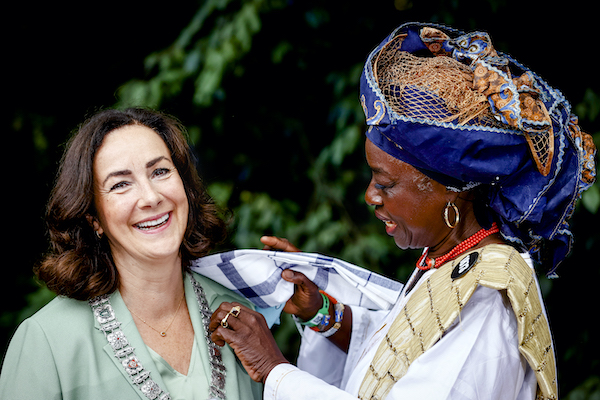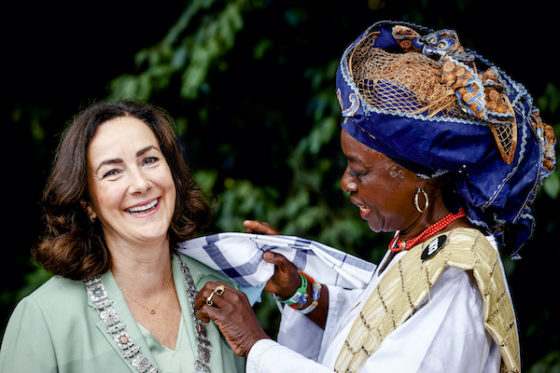Amsterdam mayor apologises for slavery past, as advisory group calls for action


The Netherlands should apologise for its slavery past and recognize slavery and the slave trade as crimes against humanity, a commission set up by the home affairs ministry said on Thursday.
The advisory group Adviescollege Dialooggroep Slavernijverleden also recommends July 1, the day when slavery was abolished in 1863, become a national day of remembrance with a ceremony attended by both the king and cabinet.
The report comes as Amsterdam’s mayor Femke Halsema made a formal apology for the city’s role in the slave trade during the annual Keti Koti ceremony which marks the end of the slavery era.
Keti Koti: what you need to know
‘On behalf of the city’s administration, I apologise for the active involvement of the Amsterdam city council in the commercial system of colonial slavery and the worldwide trade in enslaved people,’ Halsema said. ‘It is time to embed the great injustice of colonial slavery into the identity of our city, through broad and unconditional recognition.’
The city council voted last year make a formal apology.
Halsema’s statement is in line with that urged by home affairs ministry commission which said an apology is not about individuals, but about the state as a whole.
As the legal successor to the former Netherlands, it is up to the current cabinet to apologise for ‘directly or indirectly allowing’ slavery and the slave trade, the advisory board said. ‘It is not about designating individuals as guilty, but about recognition by the state of the Netherlands of the suffering caused by slavery.’
Germany, Belgium, France, the United Kingdom and the United States have already made similar gestures.
Museum
In addition, the commission suggests the establishment of a national museum of slavery and that a broader look the the country’s slavery past is included in the national curriculum.
Money also needs to be set aside for projects to help eliminate the consequences of the slave trade via a recovery fund, the commission said. However, there is no legal basis for any reparations on a personal level, the commission concluded.
Home affairs minister Kajsa Ollongren described the report as an ‘important first step towards broader recognition and embedding of our shared past’.
What decisions are eventually taken will be up to the next cabinet, she said.
Thank you for donating to DutchNews.nl.
We could not provide the Dutch News service, and keep it free of charge, without the generous support of our readers. Your donations allow us to report on issues you tell us matter, and provide you with a summary of the most important Dutch news each day.
Make a donation